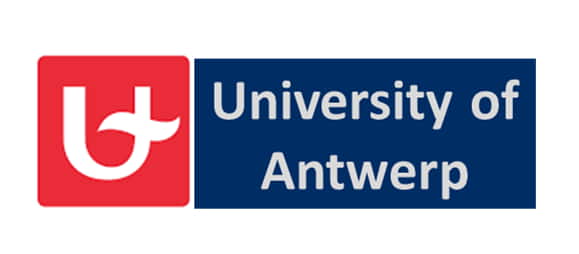Last Date: Feb 29th, 2024.
Department: Department of Physics
Regime Full-time
Let’s shape the future – University of Antwerp
The University of Antwerp is a dynamic, forward-thinking, European university. We offer an innovative academic education to more than 20 000 students, conduct pioneering scientific research and play an important service-providing role in society. We are one of the largest, most international, and most innovative employers in the region. With more than 6000 employees from 100 different countries, we are helping to build tomorrow’s world every day. Through top scientific research, we push back boundaries and set a course for the future – a future that you can help to shape.
The Electron Microscopy for Materials Science research group (EMAT) of the Faculty of Science at the University of Antwerp invites 1 PhD researcher to join a research project on the use of “low-dose electron microscopy techniques for the investigation of graphene-related materials” working under the supervision of Prof. Sara Bals.
Research group
EMAT is one of the leading electron microscopy centers in the world and has a vast expertise in both fundamental and applied electron microscopy. EMAT has several state of the art electron microscopes including three aberration corrected, high end ThermoFisher Scientific-Titan instruments, a dual beam FIB, an environmental SEM,… More about us at our webpage.
Position
- Develop different low-dose electron microscopy techniques in TEM and STEM for graphene and related materials.
- Interpret the experiments and derive the necessary knowledge to enable a further incorporation of graphene in applications.
- Disseminate results at international conferences and in high IF peer reviewed journals.
- Effectively share your knowledge with other (internal and external) team members.
Profile
- You hold a Master’s degree with background in e.g. physics, applied physics, or materials science.
- You can demonstrate excellent study results.
- Your research qualities are in line with the faculty and university research policies.
- You act with attention to quality, integrity, creativity and cooperation.
- You are enthusiastic and greatly interested in electron microscopy.
- You can submit outstanding academic results.
- You are highly motivated, quality-oriented, conscientious, creative and cooperative.
- You have affinity with experimental work and show good practical skills
- You are greatly interested in the quantitative analysis of electron microscopy data
What we offer
- A doctoral scholarship for a period of 1 year. Following a positive evaluation, the scholarship can be renewed for another 3 years.
- An exciting project in which we will aim to go beyond the state-of-the-art.
- A stimulating, high tech, and multidisciplinary research environment.
- A laboratory equipped with state-of-the-art instrumentation, including 3 aberration corrected TEM instruments.
- The ability to participate in international workshops and conferences.
- A competitive salary, suiting the complexity of the research. Your monthly scholarship amount is calculated according to the scholarship amounts for doctoral scholarship holders on the pay scales for contract research staff (Dutch: Bijzonder Academisch Personeel, BAP).
- The position should be filled as soon as possible.
- Find out more about working at the University of Antwerp here.
Want to apply?
- You can apply for this vacancy through the University of Antwerp’s online job application platform until Feb 29th, 2024. Click on the ‘Apply’ button, complete the online application form and be sure to include the following attachments:
- a motivation letter,
- your academic CV (including previous work, programming skills, publications, …),
- a SWOT analysis,
- a list and grades of the courses from that you took during your studies (Bachelor and Master)
- a summary of your Master’s thesis
- a weblink to a short video introducing yourself,
- contact info of 2 professional referees.
- If you have any questions about the online application form, please check the frequently asked questions or send an email to jobs@uantwerpen.be. More detailed information on the research topic can be obtained from Prof. Dr. Sara Bals, sara.bals@uantwerpen.be.






